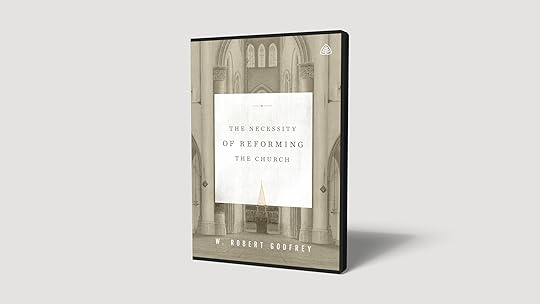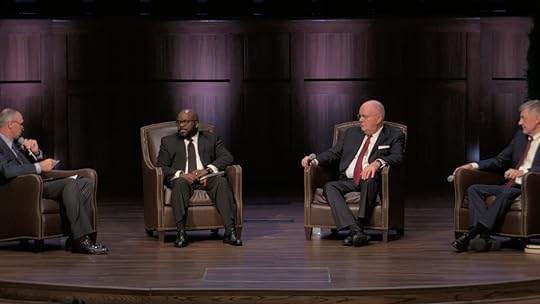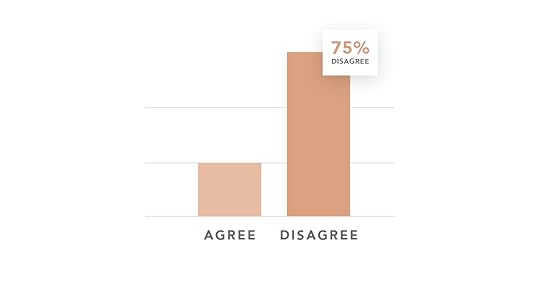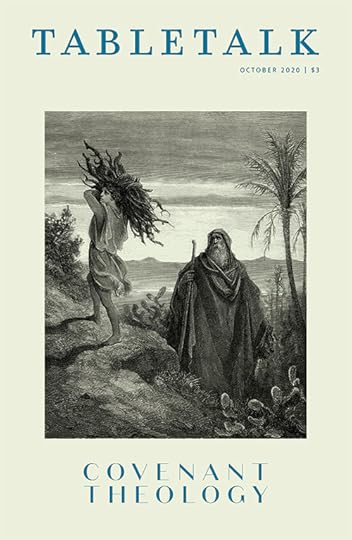R.C. Sproul's Blog, page 55
October 2, 2020
The History of the Reformation

"A cesspool of heresies.” This was the judgment rendered by Holy Roman Emperor Charles V on May 26, 1521, shortly after Martin Luther took a stand at the Diet of Worms.
Earlier, in the bull Exsurge Domine, Pope Leo X described Luther as a wild boar loose in the vineyard of Christ and as a stiff-necked, notorious, damned heretic. On May 4, 1521, Luther was “kidnapped” by friends and whisked off to Wartburg castle, where he was kept secretly hidden, disguised as a knight. There Luther immediately undertook the task of translating the Bible into the vernacular.
Frequently the Reformation is described as a movement that revolved around two pivotal issues. The so-called “material” cause was the debate over sola fide (“justification by faith alone”). The “formal” cause was the issue of sola Scriptura, that the Bible and the Bible alone has the authority to bind the conscience of the believer. Church tradition was regarded with respect by the Reformers but not as a normative source of revelation. The “protest” of Protestantism went far beyond the issue of justification by faith alone, challenging many dogmas that emerged in Rome, especially during the Middle Ages.
In a short time, the Reformation swept through Germany but did not stop there. Aided by the translation of the Bible in other nations, the reform spread to the Huguenots in France, to Scotland, England, Switzerland, Hungary, and Holland. Ulrich Zwingli led the Reformation movement in Switzerland, John Knox in Scotland, and John Calvin among the French Protestants.
In 1534 Calvin delivered a speech calling the church to return to the pure Gospel of the New Testament. His speech was burned, and Calvin fled Paris to Geneva. Disguised as a vinedresser, he escaped the city in a basket. During the next year, some two dozen Protestants were burned alive in France. This provoked Calvin to write his famous Institutes of the Christian Religion, which was addressed to the King of France. His thought contained in the Institutes developed into the dominant theology for the international expansion of the Reformation.
The first edition of the Institutes was completed in 1536, the same year Calvin was persuaded by Farel to come to Switzerland to build Geneva into a model city of Reformation. In 1538 Farel and Calvin were forced to leave Geneva. He lived and ministered in Strasbourg for three years until he was recalled to Geneva in 1541.
Calvin’s theology stressed the sovereignty of God in all of life. His chief passion was the reform of worship to a level of purity that would give no hint to or support of the human penchant for idolatry. Geneva attracted leaders from all over Europe who came there to observe the model and be instructed by Calvin himself.
During this period turbulence spread to England when King Henry VIII resisted the authority of Rome. In 1534 Henry became the Supreme Head of the Anglican Church. He undertook the persecution of evangelicals, which escalated under “Bloody Mary,” causing many to flee to Geneva for refuge.
The persecutions were suspended under “Good Queen Bess,” Elizabeth I, whose stance provoked a papal bull against her in 1570. The Reformation spread rapidly to Scotland, largely under the leadership of John Knox, who served 19 months as a galley slave before he went to England and then to Geneva. In 1560 the Scottish Parliament rejected papal authority. In 1561 the Scottish Reformed “Kirk” was reorganized.
One interesting footnote to this is that the first man John Knox ordained into the ministry of the church was an obscure clergyman by the name of Robert Charles Sproul, of whom I am a direct descendant.
In the early 17th century, the Reformation spread to the new world with the arrival of the Pilgrims and colonies of Puritans who brought Reformed theology and the Geneva Bible with them.
Reformation theology dominated Protestant evangelicalism for decades but became diluted later under influences of Pietism and Finneyism.
By the end of the 20th century, Reformation theology declined dramatically in the Western world, being assaulted by 19th-century liberal theology on the one hand, and the influence of Arminian theology on the other. This was especially true in America.
In the present scene of American evangelicalism, Reformation theology is a minority report. The dominant strands of theology that reign in current evangelical circles are dispensationalism and neo-Pentecostal charismatic thought. The phenomenal spread and growth of dispensational theology in America is a fascinating chapter in church history. Having its roots in British Plymouth Brethren suppositions, dispensationalism spread rapidly in the late 19th and early 20th centuries. Fueled by the Bible School movement, prophecy conferences, and the preaching of men like D. L. Moody, dispensationalism gathered enormous popular support.
The American version of dispensationalism got a great boost by the publication of the Scofield Reference Bible. The Scofield Bible, with its study notes, served as a popular tool for the spread of dispensational theology. This theology was forged by men who had their roots predominately in Reformation thought. The themes of classical Reformed theology were modified significantly by this movement.
The Reformation Study Bible (originally published as the New Geneva Study Bible) is the first distinctively Reformed study Bible in English to appear since the Geneva Bible in the 16th century. It seeks to recover the theology of the Reformation and provide a guide for the laity to understand its historically, doctrinally, and biblically rich system. Its importance to American Christianity is enormous. It is my hope that it will help guide English-speaking evangelicals back to their Reformation roots. More importantly, it is designed to call evangelicals back to the Bible itself and to their historic confessions of biblical theology.
Beyond the borders of America, the Reformation Study Bible may be used to expand the light of the Reformation to lands where the original Reformation never reached, especially to Russia and Eastern Europe.
In our day we have seen a revival of interest in the Bible and a renewed commitment to the authority and trustworthiness of Scripture. But the Reformation was more than a doctrine about the Bible. It was sparked by a deep and serious study of the Bible. It is not enough to extol the virtue of Scripture—we must hear the teaching of Scripture afresh. It is only by a serious and earnest recovery of biblical truth that we will be able to avoid falling into a new cesspool of heresy.
This post was originally published in Tabletalk magazine.


October 1, 2020
$5 Friday (And More): George Whitefield, the Psalms, & Evangelism

It’s time for our weekly $5 Friday sale. This week’s resources include such topics as George Whitefield, the Psalms, evangelism, the Great Commission, doxologies, Jonah, and more.
Plus, several bonus resources are also available for more than $5. These have been significantly discounted from their original price. This week’s bonus resources include:
How Can I Be Right with God? by R.C. Sproul, Paperback Book $2 $1
The Eighteenth Century: July 2018 Tabletalk , Magazine $3 $1
From Generation to Generation: October 2019 Tabletalk , Magazine $3 $1
The Church: September 2016 Tabletalk , Magazine $3 $1
John Calvin: A Heart for Devotion, Doctrine, & Doxology, by Burk Parsons $14 $8
Hymns of Grace $14 $8
New Life in Christ, by Steven Lawson $16 $10
Knowing Scripture, by R.C. Sproul $16 $10
The Urban Face of Missions, by Harvie Conn $20 $14
What Every Christian Needs to Know About the Qur’an, by James White $18 $12
The Poetic Wonder of Isaac Watts, by Douglas Bond $19 $12
The Promise Keeper: God of the Covenants, by R.C. Sproul DVD $70 $15
The Promise Keeper: God of the Covenants, by R.C. Sproul Study Guide $15 $5
Blessing and Praise: Benedictions & Doxologies in Scripture, by H.B. Charles Jr. CD $28 $12
Blessing and Praise: Benedictions & Doxologies in Scripture, by H.B. Charles Jr. Study Guide $15 $8
Sale runs through 12:01 a.m.–11:59 p.m. Friday ET.
View today’s $5 Friday sale items.


The Necessity of Reforming the Church: A New Teaching Series from W. Robert Godfrey

What if the priorities of your church and the priorities of God’s Word were worlds apart? This realization launched the sixteenth-century Protestant Reformation as figures like Martin Luther and John Calvin worked to bring the church back under the authority of Scripture. Slowed by opposition, Calvin wrote to defend the necessity of reforming the church. This work could not wait, for souls were on the line.
In this new video teaching series, Dr. W. Robert Godfrey gathers insights from Calvin’s treatise to ask penetrating questions for Christians and congregations today. Far from being over, the work of reforming the church is still needed—and it cannot wait.
This teaching series is available now for purchase on DVD or CD, as a digital download, or as a Ligonier Connect course. A corresponding study guide is also available.
Six 23-Minute Messages:
The Necessity Then
Reforming Worship
Reforming Soteriology
Reforming the Sacraments
Reforming Church Government
The Necessity Now
Watch This Brief Clip from Dr. Godfrey:
Watch a Message from This Series for Free:
Purchase Options:
Purchase on DVD ($27)
Purchase on CD ($10.80)
Download audio and video ($9.60)
Purchase the corresponding study guide ($12)
Enroll on Ligonier Connect ($9.00/month)
BUY NOW
Dr. W. Robert Godfrey is a Ligonier Ministries teaching fellow and chairman of Ligonier Ministries. He is president emeritus and professor emeritus of church history at Westminster Seminary California. He is the featured teacher for the six-part Ligonier teaching series A Survey of Church History. His many books include God's Pattern for Creation, Reformation Sketches, An Unexpected Journey, Learning to Love the Psalms, and Saving the Reformation.


Columns from Tabletalk Magazine, October 2020
The October issue of issue of Tabletalk gives an overview of covenant theology. Covenant theology has long been a central feature of Reformed theology because covenant theology is nothing less than the theology of Scripture. However, it takes time to grasp covenant theology and all its implications and applications, and the sharp distinctions that many traditions make between the various biblical covenants can make things even more confusing for people in the church. Fully understanding and embracing covenant theology does much good for the Christian life and one’s interpretation of the Bible, so it is vital that believers have a basic grasp of a covenantal reading of Scripture. This issue seeks to help readers better understand covenant theology by exploring its basics and the many ways it applies to the Christian life.
Browse and read the growing library of back issues, including this month's issue. You can also purchase the issue or subscribe to get the print issue every month.
True Theology by Burk Parsons
The Covenantal Hermeneutic by Keith A. Mathison
The Covenant in History by R. Scott Clark
Covenant Dynamics by Guy Prentiss Waters
The Covenants in Scripture by Robert Rothwell
Covenant Theology Applied by Donny Friederichsen
Read the Current Issue
Subscribe to Tabletalk today for only $23 a year, and $20 to renew. You save even more if you get a 2- or 3-year subscription (as little as $1.36 per issue). Get your subscription to Tabletalk today by calling one of Ligonier Ministries’ resource consultants at 800-435-4343 or by subscribing online.


September 30, 2020
We Are Not Autonomous
In this brief clip from his teaching series Willing to Believe, R.C. Sproul explains how understanding human freedom as human autonomy is the end of any idea of a sovereign God.
I'd just like to say to you at the outset that the two concepts of human freedom and divine sovereignty are not inherently contradictory. There may be an abundance of mystery on how the two interact and relate, but they are not inherently contradictory. Let me tell you what is contradictory. These two concepts: sovereignty and human autonomy.
If we mean by freedom absolute freedom or what we call autonomy—where the person is a law unto themselves, where there is no overarching, binding authority or power that restricts them from exercising whatever options they choose to exercise—if you mean by freedom absolute freedom or autonomy—then there's no way in the world you're ever going to be able to square these two concepts. Because if God is sovereign, meaning that His freedom is absolute and extends over His whole creation so that He has the power and the ability to choose whatsoever He will, If God is sovereign, then manifestly no creature can be autonomous because to be autonomous is to be a law unto yourself and to be a law unto yourself precludes the possibility of anything or anyone reigning sovereignly over you.
So these two concepts cannot coexist. If God is sovereign, we are manifestly not autonomous. On the other hand, if we are autonomous, then that's the end of any idea of a sovereign God.


What Does ‘Ex Nihilo’ Mean?

Until the Enlightenment, the most firmly established article of Christian faith in the secular world was that of creation. It had been established not only by revelation but also by reason, not only by religion but also by science. To medieval philosophers, the idea of something coming from nothing was absurd, unscientific, and illogical. If something exists, it must either have the power of being in itself or it must come from something that has the power of being in itself. Otherwise, nothing at all could exist. This point is important because atheists and secularists in recent centuries have focused their attention on creation. If they can undermine our certainty that we live in a created universe, they can undermine any argument for the existence of God. If you do away with creation, you do away with the Creator.
The classic Christian doctrine of creation is creation ex nihilo (out of nothing). The writer who most thoroughly developed this concept was Augustine. He said God spoke the universe into being out of nothing. God did not take eternally preexisting matter or substance and reshape or reconfigure it into the present world. His creative activity is not like that of human artists.
Think of Michelangelo, who sculpted magnificent statues from stone. Michelangelo believed that he did not create a statue but released the figure from its stone prison. It is inconceivable that his statues could have created themselves without the work of a master sculptor. Michelangelo’s genius was his unique ability to reshape a block of stone into a magnificent figure. But he had to start with some substance or material. Similarly, Rembrandt had to begin with his canvas and paints. His inventive brilliance was in working with materials already at his disposal. We call this creativity, but no one in this world has the power or ability to create something out of nothing. Only God can do that.
When we assert creation ex nihilo, the obvious question is, How could God possibly do such a thing? It almost sounds like magic, where God is the magician who pulls a rabbit out of a hat. But in the act of creation, there were no trick mirrors, no rabbits, no hats, and not even a magic wand. Every effect must have a cause. There are different kinds of causes. Aristotle, for example, differentiated between several kinds, using the example of a sculpture: its material cause (out of which something comes) is the block of stone; its instrumental cause (the means by which the effect is brought to pass) is the chisel and hammer, instruments the sculptor uses to bring about the effect; its formal cause (the idea to which the effect must correspond) is the sketch used as the image is shaped; its final cause (the purpose for which it is made) is to beautify a building, fulfill a commission, or some other reason. Aristotle also distinguished between efficient and sufficient causes: the efficient cause is the sculptor, who actually brings about the sculpture; the sufficient cause is the power needed to bring the effect into being.
Creation had neither a material nor an instrumental cause. There was a formal cause, a final cause, an efficient cause, and a sufficient cause. The formal cause was God’s idea and plan to create the world, not out of necessity or His own need, but according to His own purpose. The final cause was God’s purpose, a plan He executed initially by the actual work of creation. The final cause was God’s ultimate glory and our well-being (which also redounds to His glory). God was both the efficient cause and the sufficient cause because He alone had the power to bring something out of nothing.
By what means did God accomplish the feat of creation ex nihilo? By His speech. Augustine called this the divine imperative or fiat. God spoke the words “Let there be” (Gen. 1:3, 6, 14)—meaning “There must be”—and things appeared. In the film Anna and the King of Siam, the king frequently says, “So let it be said; so let it be done.” That is an imperial command that cannot be countermanded. In creation, there was no block of stone or mass of unstructured matter, but only the command of God, who alone had the power to make things happen simply by uttering a command. It was the power of His word that created.
By the power of His word and His sovereign, efficacious will, God can make things happen simply by decree. We see this demonstrated to some degree when at Jesus’ command the Sea of Galilee stopped raging and the wind ceased blowing. Jesus said: “Peace! Be still!” (Mark 4:39), and it was still. In response, the disciples’ fear increased rather than decreased. Terrified of Jesus, they cried out, “Who then is this?” (Mark 4:41). They had never met someone with an authority so transcendent, holy, and majestic that even the winds and the sea obeyed him.
Jesus also displayed this power when raising Lazarus from the dead . After being dead for four days, Lazarus, in the language of the King James Version, “stinketh” (John 11:39) . That description underscored the fact that Lazarus was indeed dead, and that his body had begun to decay . When raising Lazarus from the dead, Jesus stood outside the tomb and cried out, “Lazarus, come out” (John 11:43) . At the verbal command of the incarnate Christ, Lazarus’ heart immediately began to pulsate and to pump blood throughout his vessels, oxygen began to flow, brain waves were initiated, and Lazarus woke up and came out of the tomb a living man.
In the book of Romans, Paul speaks of the uniqueness of God, who alone can bring something out of nothing and life out of death (Rom. 4:17). Paul tells us that the energizing power of God’s Word is that which raises us from spiritual death and translates us from the kingdom of dark- ness into the kingdom of light. God can assure His church that His Word will not return to Him void because it contains His power (Isa . 55:11) . We stand in awe that our Creator formed the entire vast universe out of nothing by the sheer command of His voice.
Some profound philosophical questions flow from the concept of creation ex nihilo. Although there was no preexistent material out of which God ordered the universe, it is not as if there was absolutely nothing. Ex nihilo means that there was no substantive or physical reality, but obviously there was always God Himself and His spiritual reality. We learn in Scripture never to identify the universe or any part of it with God Himself. To confuse the Creator and the creature is to fall into pantheism, which obscures the clear distinction between creature and Creator. Yet we hear from the Apostle Paul, citing Greek poets, that “in him we live and move and have our being” (Acts 17:28). For our very existence we are utterly dependent on the sustaining power of God. That which He creates, God holds in existence. We depend on Him not only for the original act of creation but also for existence from moment to moment. There is no life apart from Him.
When we say that our being is in God, we raise the question of whether the stuff of the universe is an extension of God’s being, somehow a part of Him. This gives rise to forms of pantheism. It is difficult to understand how God, who is infinite in His being, can permeate everything and yet allow something to exist that is completely distinct from His own being. We do, in some sense, owe our existence to His very being, but that does not deify us in any way. There is a distinction between self-existence and creaturely existence, and we are never to think of ourselves as little gods or sparks of the infinite. We do not exist on our own power but depend every second on the being of God for our existence. We are not God, and how we exist under the influence of His creative power is something that no one can explain. Of this we can be certain: unless that power of being is over us and prior to us, nothing could possibly be.
This excerpt is adapted from Truths We Confess by R.C. Sproul. In Truths We Confess, now thoroughly revised and available in a single, accessible volume, Dr. Sproul introduces readers to this remarkable confession, explaining its insights and applying them to modern life. Order the hardcover book today.


September 29, 2020
Augustine and the Pelagian Controversy
Here’s an excerpt from Augustine and the Pelagian Controversy, Gerald Bray's contribution to the September issue of Tabletalk:
The Pelagian controversy takes its name from Pelagius, a British-born monk who was teaching in Rome from about AD 380 to 410. Pelagius wrote a set of biblical commentaries that have been preserved under the names of Jerome and Cassiodorus. It seems that the Pelagian controversy arose not because Augustine had read Pelagius’ writings, but the other way round. Pelagius read what Augustine was teaching about human sinfulness and the need for divine grace, and he objected to what he regarded as an unacceptable novelty. It was only after he expressed his opposition to Augustine that the latter’s attention was drawn to the issues at stake.
Continue reading Augustine and the Pelagian Controversy, or begin receiving Tabletalk magazine by signing up for a free 3-month trial.
For a limited time, the new TabletalkMagazine.com allows everyone to browse and read the growing library of back issues, including this month’s issue.


September 28, 2020
Stream for Free: Dallas–Fort Worth Conference

All of the messages from More Than Conquerors, our 2020 Dallas–Fort Worth Conference, are now available for free on Ligonier.org, the Ligonier app, and YouTube.
Sessions
Foundations of Grace (Pre-Conference) by Steven Lawson
Pillars of Grace (Pre-Conference) by Steven Lawson
No Condemnation by H.B. Charles Jr.
The Spirit Is Life by Derek Thomas
Heirs of God by Steven Lawson
A Future Hope by H.B. Charles Jr.
The Intercession of the Spirit by Derek Thomas
More Than Conquerors by Steven Lawson
Q&A with Charles, Lawson, and Thomas
STREAM NOW
Don’t forget to join us on October 3 at 1:00–3:00 p.m. for Always Ready, a free livestream created to help students share their faith and stand firm for the truth of God’s Word.


Is It Acceptable to Interpret Adam as an Allegory, Not a Historical Person?

What do we lose if we don’t believe that Adam was a real, historical person? From one of our live events, R.C. Sproul and John MacArthur express the dangers of rejecting the Creator’s account of humanity's origins.
Do you have a biblical or theological question? We invite you to ask Ligonier.
Read the Transcript


September 26, 2020
Is Theology Only for Pastors?

Our 2020 State of Theology survey unveils what Americans think about God, the Bible, truth, and ethics. Conducted in partnership with Lifeway Research, the full results of this survey are now available.
America’s increasingly secular culture gives the impression that theology, the study of God and all that He has revealed, is no longer considered relevant to everyday people. However, 75 percent of U.S. adults disagreed with the following statement from our 2020 survey: “Learning about theology is for pastors and scholars only.”
We asked Ligonier Teaching Fellow Dr. Stephen Nichols to help us interpret these surprising findings.
While the majority of Americans deny basic tenets of the Christian faith, it seems that many still profess a desire to have some understanding of who God is. Sadly, the State of Theology survey suggests that an increasing number of Americans are constructing their theology apart from God’s written revelation in the Bible.
Especially with the fears and concerns occasioned by COVID-19, people may now be giving more thought to ultimate matters of eternal significance. This presents the church with a unique opportunity to respond with the truth that God Himself has revealed in His Word. We hope that these survey results will help equip Christians to do just that.


R.C. Sproul's Blog
- R.C. Sproul's profile
- 1931 followers





